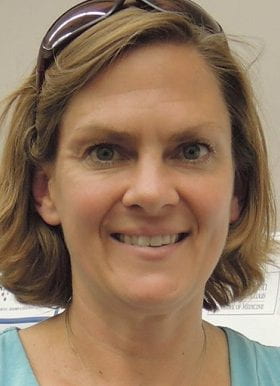
Heather True, PhD
Professor, WashU Cell Biology & Physiology
- Phone: 314-362-3927
- Email: heather.true@nospam.wustl.edu
Protein misfolding and aggregation of prion proteins
Prions are infectious proteins, initially hypothesized to be the causative agent of certain neurodegenerative disorders in mammals called transmissible spongiform encephalopathies. Prion proteins harbor the ability to exist in structurally distinct states associated with functional alterations that undoubtedly have biological consequences. While the applicability of the prion hypothesis is still debated for mammalian prions, it is clear that a similar process occurs in yeast. In yeast, prions serve as heritable epigenetic elements and represent a novel mechanism of phenotypic inheritance. Yeast prions have provided a simple model system to study prion formation and propagation. This model has revolutionized the mammalian prion field, as several yeast proteins have been shown to behave as prions. In addition, the properties of yeast prions are reminiscent of several misfolded proteins that result in neurodegenerative disorders. Thus, yeast provides a tractable model system to understand the nature of such pathological aggregates.
The True Lab is interested in the biological consequences of yeast prions – in both their capacity to function as novel epigenetic elements, as well as in their utility in modeling mechanisms of protein misfolding and aggregation that mimic important events in several neurodegenerative disorders. Additionally, we are interested in how prions in yeast impact survival and adaptation. We are also interested in understanding what other prions exist and how broadly prions affect cellular physiology. We are also using yeast prions to understand how the environment influences protein misfolding and aggregation, a question that has been difficult to address with current model systems of neurodegenerative disorders.